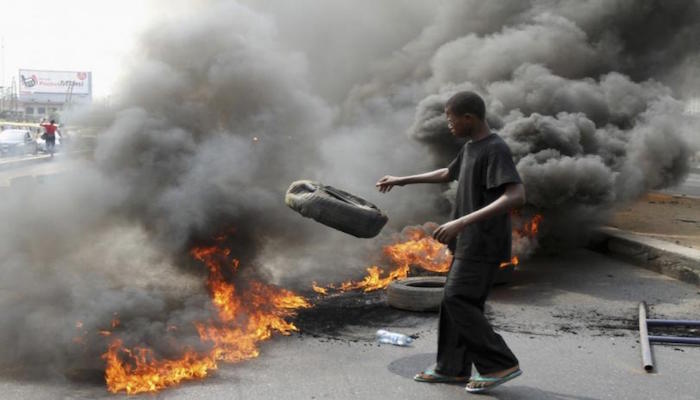President Muhammadu Buhari on Sunday gave his democracy day speech marking one year anniversary since he was sworn in as democratically elected president. A frail looking Buhari reeled out some of the challenges they have faced referring to a combination of what they had inherited from the previous government and the economic situation in the country which they had little control over. As expected, a lot of the rhetoric was partisan and laden with hope of a better tomorrow.
A research firm, SBM Intels however has a different view about the economy dishing out a set of predictions that is bound to make the presidency shudder. In a report titled “Analyzing Buhari’s 170 Promises” the research firms scores Buhari on his promises as well as predict where the country might be in terms of the economy, security and politics. We focus on the economy in this article;
- Recession – GDP Growth rate will contract again by the second quarter of 2016 as consumer demand wanes and company revenues decline.
- Inflation Rate – Inflation rate will spike to about 15-16%and probably stabilize till about the end of the year.
- Increased Militant activity – The reduced production of oil due to Niger Delta militant activity will affect the NNPC’s ability to meet its obligations in crude swap deals. This, coupled with the non-resolution of the FX issue as well as well as non-removal of subsidy will lead to even more excruciating fuel scarcity in the months to come.
- Foreign Loans – Nigeria might be unable to raise the foreign loans to fund its budget deficit and this will significantly affect budget performance especially as tax income is projected to fall short of government projections.
- Herdsmen Violence – The effect of years of pastoralist violence in the Middle Belt leading to greatly reduced domestic food production coupled with FX unavailability to import will lead to scarcity of key food items.
- Naira devaluation – The FG will be forced to devalue the naira in the third quarter of the year to reflect current realities. However, the FG may want to retain a two tier exchange rate. This will be buoyed by a rebound in oil prices helping government increase revenues, providing the security challenges are contained. This will however create room for arbitrage, uncertainty and will continue to negatively affect manufacturing and industry.
- Volume of Oil produced – Oil volumes will remain low and probably drop further. If the approach President Buhari took with the naira is anything to go by, and his current stance continues, militant activity will only increase until it cripples the oil production, forcing him to reluctantly change approach. We believe that the region will take at least 6 months to pacify. Sadly, a subsequent increase in production will not translate to increased revenue for Nigeria as the country would have lost market share to other countries who have continued to ramp up production.
- PIB Bill – The PIB will not be passed this year as various interest groups bicker over its contents.
- Power supply – From our interviews with industry experts, power supply from hydro is projected to increase by 300 or so MW in Q3.
- FPI’s – Foreign Portfolio Investment may increase gradually following a devaluation of the naira, and the full implementation of the budget. This will however not reach optimal levels as most foreign investors believe the appropriate pricing mechanism for the Naira is to float the currency, which is unlikely to happen following the MPC’s recent announcement of a flexible exchange rate in the near future.
- Job losses – However as the economy has almost definitely contracted in Q2, more jobs will be lost, taking job losses to about 1.2 million by the end of Q2, an acceleration from Q1’s 500,000 job losses. The unemployment rate will stabilize by Q4 as effects of the budget starts to take hold.
- Tax Reforms – There will likely be new tax reforms by Q4 with a mixture of tax increases (particularly VAT) and incentives for smaller businesses to create jobs.
- Cost of borrowing – The government will borrow more to augment the budget taking our total external debt from $10.7 billion to about $12 billion and local debt from N8.8 trillion about N10 trillion. The cost of this borrowing will be significantly higher than in the last couple of years due to Nigeria’s removal from key emerging market indices such as the JP Morgan Emerging Market Index.
Get the full report here
